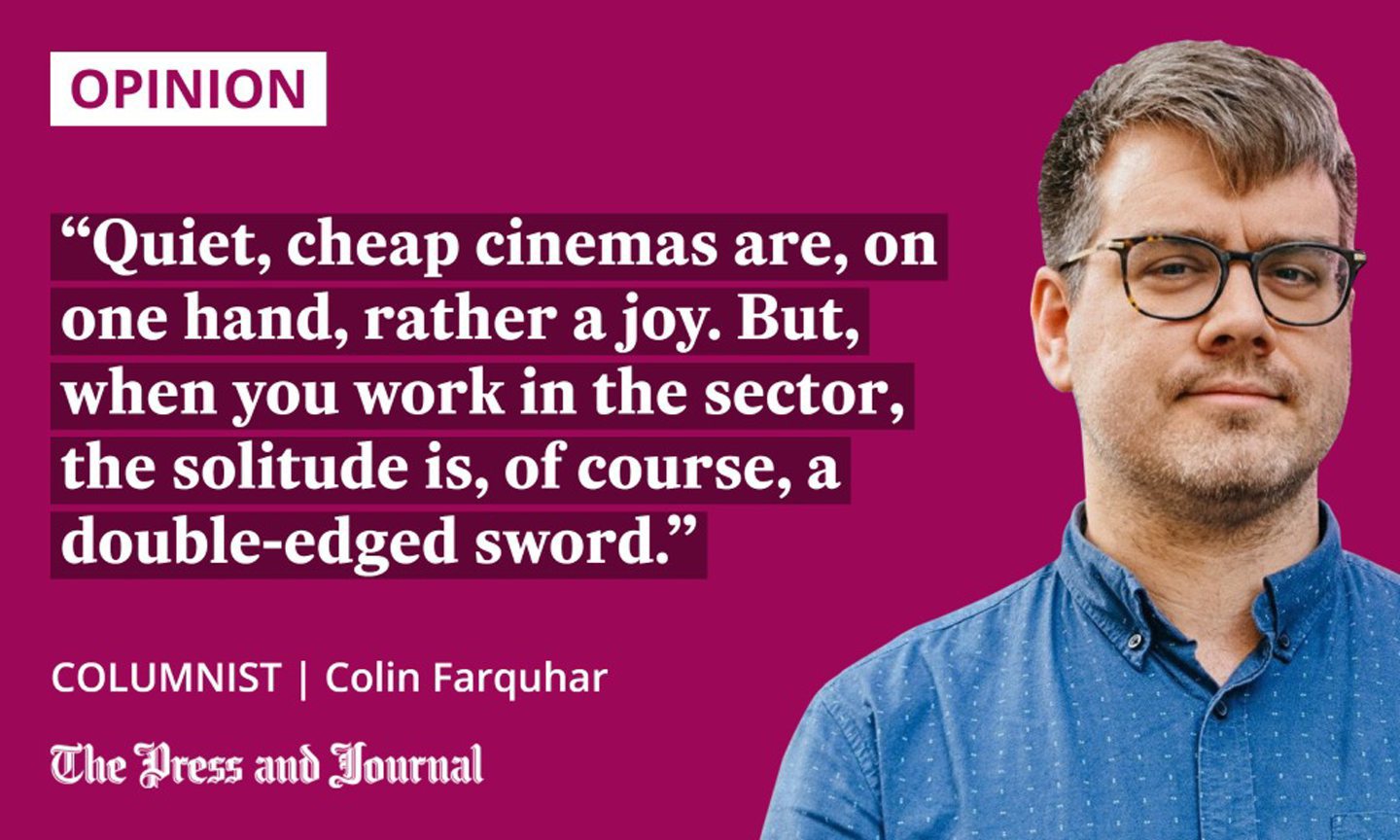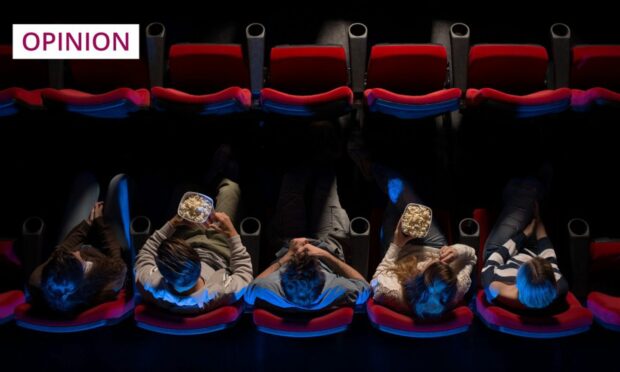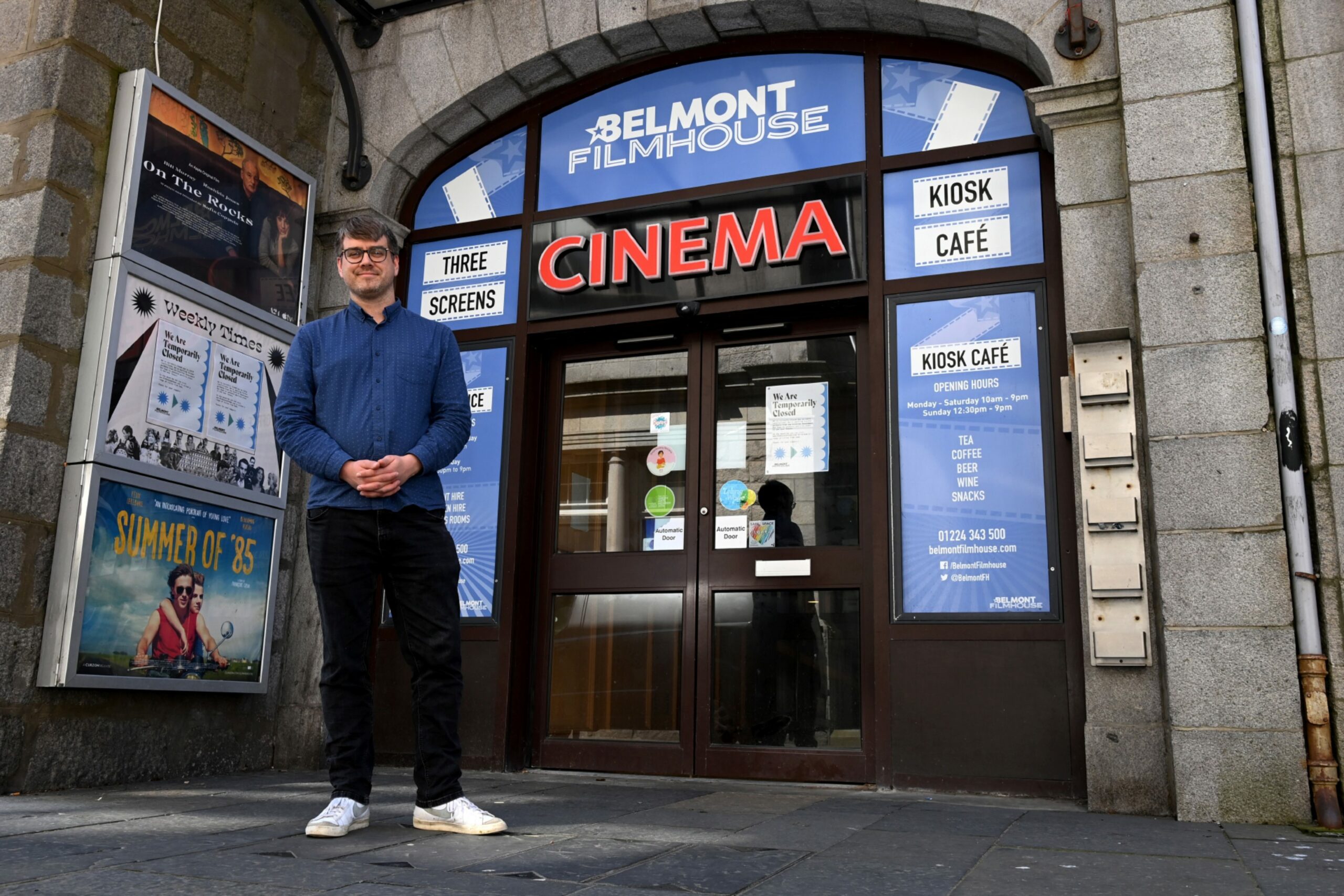I remember the first time I went to a multiplex cinema by myself.
It was 2010 and at the Vue, on Shiprow, to see a Paul Greengrass war film called Green Zone, starring Matt Damon. It was a late-night performance, perhaps beyond 10 or even 11pm. The cinema was quiet, if not empty, apart from me.
The film is good. Better than reviews from the time suggest. It was not seen by a huge number of people.
Belmont Filmhouse, at that time operated by Picturehouse (a chain which itself is now owned by Cineworld), has perhaps always been a cinema that people felt more comfortable visiting by themselves. Certainly, I was.

When I tottered down to Vue to see Green Zone I’d already been working at Belmont for three years. I’d watched many films on my own, after shifts, and sometimes completely alone, the only person in the cinema.
Why is it easier to go to an arthouse cinema alone? Likely it’s something to do with the difficulty of raising a posse for a French surrealist reissue, or a four-part musing on the Iranian death penalty.
Maybe it’s the atmosphere, which is typically less hectic, and staffed with faces that may be more familiar. Or, possibly, it’s just the type of people who tend to frequent them, who well understand that a cinema trip by oneself can be one of life’s great pleasures.
Cineworld survival is important for all cinemas
Since the pandemic started, I’ve tried to make as many visits to the other cinemas as I’ve been able to, which has, once again, included a few solo outings – FYI, Candyman would have probably been better enjoyed with someone to cling onto, at least through the tenser bits. I’ve been to both Cineworlds in Aberdeen and Vue slightly more regularly than pre-pandemic.
An increased frequency of cinema visits has been far from the norm for most people as we emerge from the worst of Covid. These are still early days.
Quiet, cheap cinemas are, on one hand, rather a joy. But, when you work in the sector, the solitude is, of course, a double-edged sword. Every empty seat is a reminder that the industry is still struggling with a world which might not be changed completely, but whose habits have been wholly dented by coronavirus. People are still not going to cinemas often enough.
This brings us to the news of Cineworld’s possible declaration of bankruptcy, which may well have happened by the time this article is published. My tentative understanding is that, for now, Cineworld (and Picturehouse Cinemas) can continue to trade, which will be a huge relief to the staff, who have my thoughts at what must be a very difficult time.
The chain’s continued operation would be a reassurance to the wider cinema industry, too. The survival of a key player is important, if cinemas are to continue their recovery.
Cinema industry is an ‘ecosystem’
It has been a little over a week since I last visited Cineworld in Union Square, to see Jordan Peele’s new horror, Nope. Although the film is showing at Belmont Filmhouse, I do like to go to the other cinemas, for a stretch of the legs, when I can.
We need the multiplexes and the blockbusters, the arthouses and the indies, to all survive
The film is a reasonably big release but, like most other films outside the mega-blockbusters, it appears to be slightly underperforming. Cineworld was quite quiet for a Saturday night, as was Belmont Filmhouse, although attendance numbers of late have, once again, shown a little improvement.
On the whole, though, customers are not yet as familiar with the cinema release schedule as they were before Covid.
The lack of familiarity in the audience has led to an over-reliance on the “tent-pole” releases of No Time to Die, Spider-Man and Top Gun: Maverick across the sector. Along with a large debt, fuelled by aggressive expansion, this may have left Cineworld vulnerable for now, but one hopes that they’ll see this through to the other side.
As former programming chief at Home in Manchester, Jason Wood, says, the cinema industry is an “ecosystem”. We need the multiplexes and the blockbusters, the arthouses and the indies, to all survive, to drive the richness, diversity and attractiveness of the experience.
If you love films – go and see one
Cries of the “death of cinema” are incredibly premature. The idea that streaming is killing cinema is, for me, a misdirection.
The industry will struggle as audiences negotiate a cost of living crisis and the possibilities of recurrent Covid surges. They are, understandably, more selective about their interactions and outings. Things will improve as the nights draw in, and as Hollywood begins to churn out more regular content.
This is bad news. If you love film, go to the cinema this weekend. https://t.co/7Uoq02h5NU
— Stuart Brown 🇺🇦🇺🇦🇺🇦 (@Brownstu) August 19, 2022
I hope Cineworld survives this scare, and that the cinema industry continues to build its recovery, which now also has to negotiate incredibly high living and energy costs.
For now, cinema in Aberdeen still represents a cheap and fun night out. If you love it, you should go. Even if you have to go by yersel.
Colin Farquhar is head of cinema operations for Belmont Filmhouse in Aberdeen



Conversation